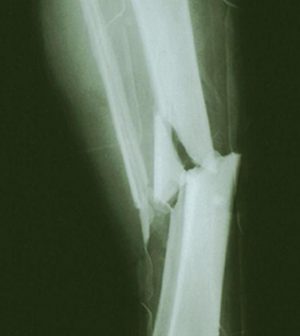- The Best Time of Day to Drink Bone Broth to Maximize Health Benefits
- 8 Ways to Increase Dopamine Naturally
- 7 Best Breads for Maintaining Stable Blood Sugar
- Gelatin vs. Collagen: Which is Best for Skin, Nails, and Joints?
- The Long-Term Effects of Daily Turmeric Supplements on Liver Health
- Could Your Grocery Store Meat Be Causing Recurring UTIs?
- Are You Making This Expensive Thermostat Error This Winter?
- Recognizing the Signs of Hypothyroidism
- 10 Strategies to Overcome Insomnia
- Could Artificial Sweeteners Be Aging the Brain Faster?
Cancer Survivors May Face Higher Risks for Bone Fractures

Adult cancer survivors, particularly those who have undergone chemotherapy, have an increased risk for serious pelvic and vertebral fractures, new research shows.
“These findings are important as the number of cancer survivors living in the United States is projected to rise to 26.1 million by 2040. Research like this seeks ways for cancer survivors to have a better quality of life after their diagnosis,” said study lead author Erika Rees-Punia. She is a behavioral and epidemiology researcher at the American Cancer Society.
“Fractures of the pelvis and vertebrae are more than just broken bones — they are serious and costly,” Rees-Punia added in a society news release.
The researchers analyzed data from the Cancer Prevention Study-II Nutrition Cohort linked to Medicare claims from 1997 to 2017. Of about 92,400 participants they assessed, more than 12,900 had had a frailty-related bone fracture. Investigators compared that group to people without a history of cancer.
Cancer survivors who were more recently diagnosed within five years with an advanced stage cancer had the highest risk of fracture compared to those with no previous cancer.
Vertebral and pelvic fractures drove this higher risk.
Survivors who received chemotherapy were more likely to have a fracture compared to survivors with no past chemotherapy. Researchers found this association was stronger within five years of diagnosis but was still suggestive even after the five-year mark.
Physical activity may be associated with lower risk, researchers noted. Current smoking was associated with a higher risk of fracture among cancer survivors five or more years after diagnosis.
“We hope our findings will inform clinical guidance on fracture prevention, which could incorporate physical activity with exercise cancer professionals and smoking cessation programs, to improve quality of life after a cancer diagnosis,” Rees-Punia said.
The findings were published Nov. 3 in JAMA Oncology.
More information
MD Anderson Cancer Center has more on bone health and cancer.
SOURCE: American Cancer Society, news release, Nov. 3, 2022
Source: HealthDay
Copyright © 2026 HealthDay. All rights reserved.










